BACK
Fine motor skills are the foundation of many daily tasks and are crucial for a child’s development, especially as they prepare for school.
These small, precise movements—such as picking up a spoon, holding a pencil, or threading beads—are vital for early learning and independence.
Fortunately, developing fine motor skills can be fun and educational!
What Are Fine Motor Skills?
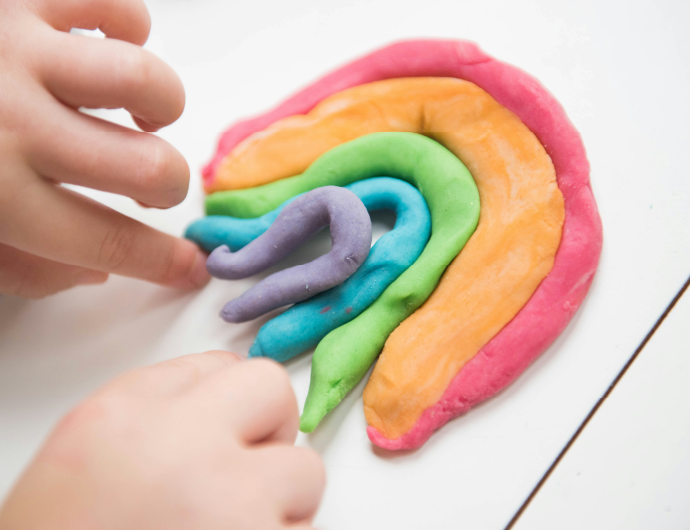
Fine motor skills are the ability to use the small muscles in the hands, fingers, and wrists to perform precise movements. These skills are crucial for everyday tasks such as writing, drawing, dressing, eating, and using tools.
For young children, developing fine motor skills is an essential part of their overall growth, as these abilities lay the foundation for more complex activities and academic success later on.
10 Art and Creative Activities for Fine Motor Skills
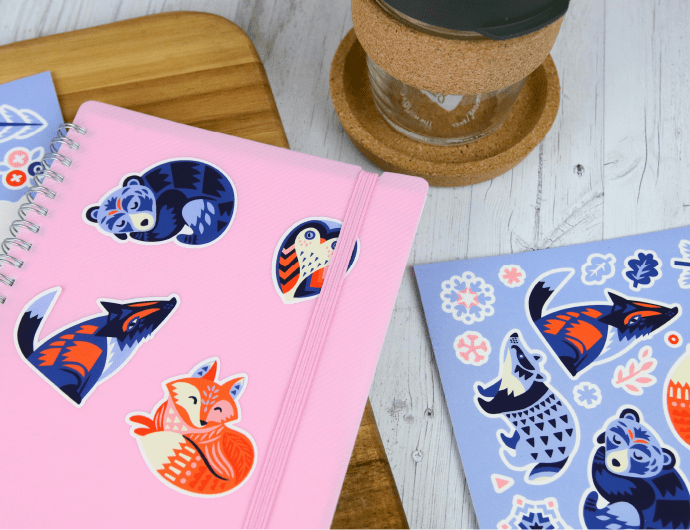
1. Finger Painting
Engage your child’s creativity with finger painting, allowing them to express themselves while strengthening fine motor skills. The tactile experience of using fingers or brushes helps develop grip and control.
2. Drawing and Colouring
Encourage your child to hold a pencil, crayon, or marker to draw or colour in shapes. This simple activity promotes hand strength, fine motor control, and early artistic expression.
3. Play-Doh Creations
Play-Doh offers endless opportunities for imaginative play. Rolling, squishing, and shaping the dough enhances finger dexterity and hand-eye coordination while fostering creativity.
4. Spaghetti and Marshmallow Construction
This hands-on activity allows children to build structures by connecting uncooked spaghetti and marshmallows. It’s an excellent way to refine their fine motor skills through creative construction.
5. Stamping with Sponges
Cut sponges into fun shapes and have your child dip them in paint to stamp on paper. This activity strengthens hand muscles and improves control while introducing children to creative patterns.
6. Q-Tip Painting
Hand your child some cotton swabs and paint, and let them create dot-based artwork on paper. This activity helps refine their pincer grasp and encourages control over smaller movements, making it a fun and focused way to build fine motor precision.
7. Sticker Collage Making
Offer a variety of stickers and encourage your child to place them on paper to create a collage. This simple yet engaging activity enhances finger strength, control, and attention to detail.
8. Nature Collage Craft
Take a walk with your child to collect leaves, flowers, twigs, or pebbles, then use glue to create a nature-inspired collage on paper. This activity blends creativity with sensory exploration while also developing fine motor skills through picking, arranging, and pasting natural materials.
9. Pasting with Glue and Tissue Paper
Provide glue and tissue paper for your child to create collages or artwork. This task develops their ability to manage glue, improves fine motor control, and encourages artistic expression.
10. Animal Shape Stamps
Let your child use animal-shaped rubber stamps and ink pads to create prints on paper. This activity promotes creativity while helping them develop the skill to control the stamp’s pressure and placement.
4 Building and Construction Activities for Fine Motor Skills
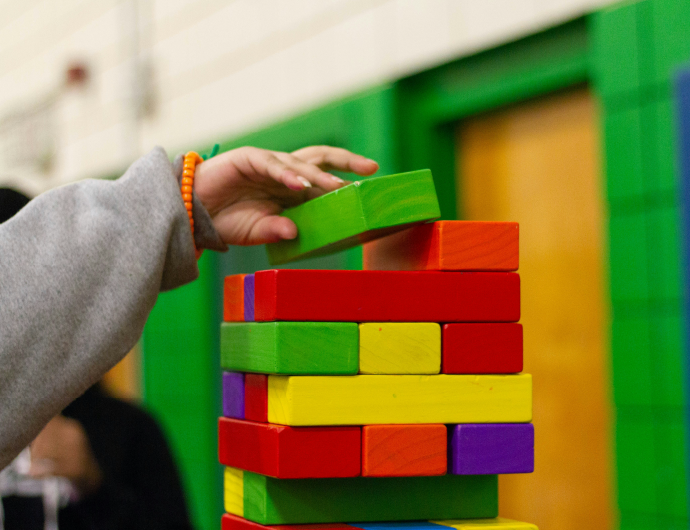
11. Building with Blocks
Encourage your child to construct various structures using blocks. This activity is not only fun but also strengthens hand-eye coordination and fine motor control as they stack, arrange, and balance the pieces.
12. LEGO or Duplo Building
Building with LEGO or Duplo blocks allows children to manipulate small pieces, improving their dexterity, spatial awareness, and fine motor coordination. It also encourages creativity and problem-solving skills.
13. Building with Craft Sticks
Guide your child to create simple structures using craft sticks. This activity helps strengthen the small hand muscles required for grasping and improves hand-eye coordination while fostering creativity.
14. Building with K’NEX or Magnetic Tiles
K’NEX and magnetic tiles offer a hands-on experience where children can create complex structures and designs. These tools enhance fine motor skills as children grasp, twist, and connect the pieces, promoting both creativity and precision.
5 Threading and Lacing Activities for Fine Motor Skills
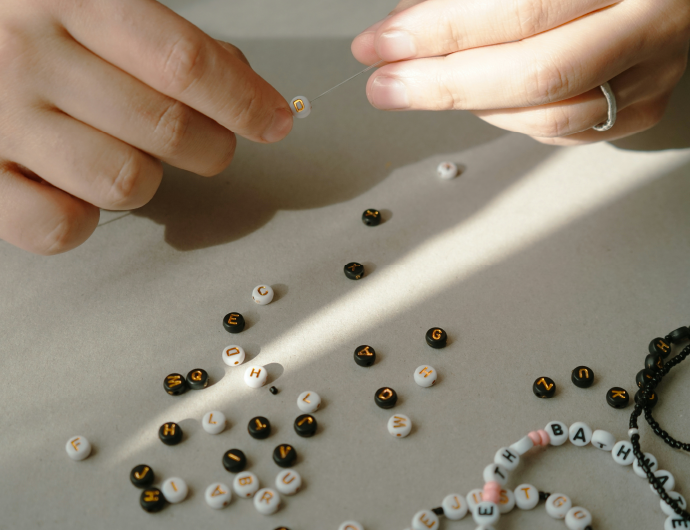
15. Bead Threading
Help your child develop hand-eye coordination and dexterity by threading beads onto a string or pipe cleaner. This activity improves their focus, fine motor control, and ability to handle small objects with precision.
16. Lacing Cards
Provide your child with lacing cards where they can thread a lace through pre-punched holes. This simple activity strengthens their grip, improves coordination, and helps them master the art of controlling small movements.
17. Threading Fruit Loop Necklaces
Encourage your child to create necklaces by threading fruit loops onto a string. This fun, colourful activity helps them improve their fine motor skills while also introducing them to pattern recognition and sequencing.
18. Bead Necklace Making
With large, colourful beads and a string, let your child create their own unique necklace. This activity fosters creativity while enhancing dexterity, concentration, and the ability to manipulate small objects with care.
19. Sewing Cards
Introduce your child to simple sewing cards, where they can thread a string through holes on the card. This hands-on activity promotes fine motor control, patience, and hand-eye coordination as they work on their stitching skills.
3 Cutting and Tearing Activities for Fine Motor Skills
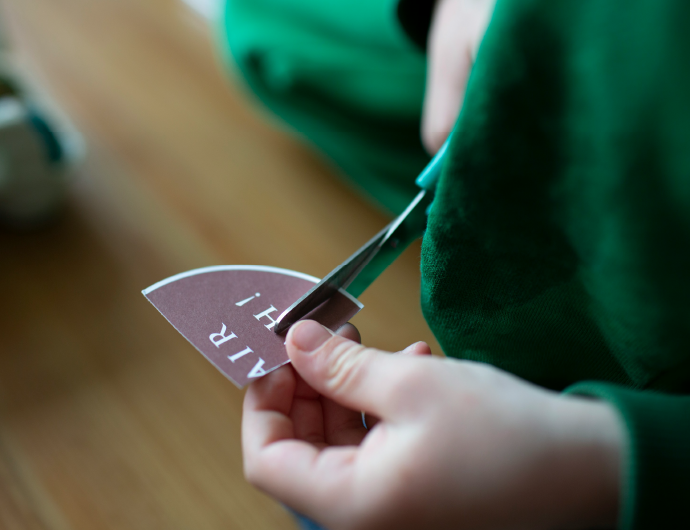
20. Scissors Practice with Play-Doh
Using child-safe scissors, encourage your child to cut through the Play-Doh. This activity enhances their grip strength and teaches control, which is essential for mastering cutting skills later on.
21. Cutting Strips of Paper
Provide strips of paper and safe scissors for your child to practice cutting. This activity helps strengthen hand muscles and enhances coordination, which is crucial for later learning to write and cut shapes.
22. Paper Tearing
Encourage your child to tear pieces of paper into small sections. This simple activity strengthens finger muscles and enhances hand coordination while also introducing the concept of controlled movements and precision.
3 Sorting and Categorisation Activities for Fine Motor Skills
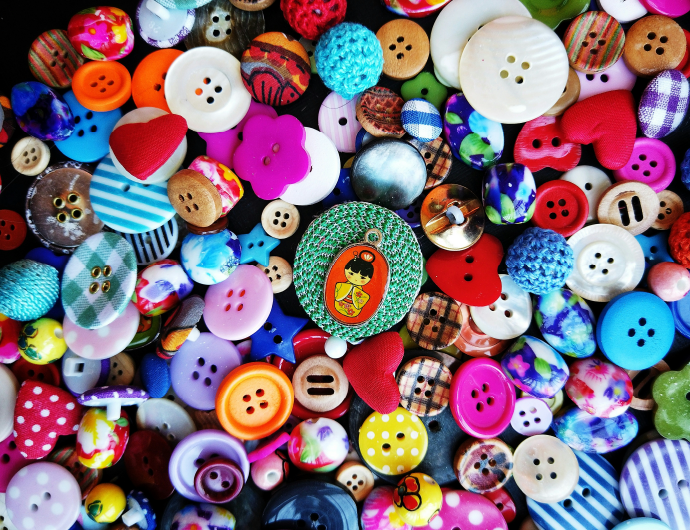
23. Sorting Buttons by Size or Colour
Provide a variety of buttons and have your child sort them by size, colour, or shape. This activity not only enhances fine motor control but also promotes cognitive skills like classification and pattern recognition.
24. Colour Sorting with Crayons
Encourage your child to sort a selection of crayons by colour. This task helps improve their fine motor skills while also teaching them about colour recognition and categorisation.
25. Sorting Coins by Size and Colour
Give your child different types of coins and ask them to sort them by size, colour, or denomination. This activity strengthens fine motor control and introduces early mathematical concepts like grouping and counting.
7 Coordination Skills Activities for Fine Motor Skills

26. Pom-Pom Drop with Pipe Cleaners
Encourage your child to insert colourful pom-poms into the holes of a colander using pipe cleaners. This activity enhances hand-eye coordination and dexterity while providing an engaging, tactile experience.
27. Tracing with Objects
Provide objects like buttons or beads and encourage your child to trace around them on paper. This activity helps improve precision and control, strengthening their fine motor skills.
28. Pinching and Squeezing Play-Doh
Invite your child to pinch, squeeze, and roll Play-Doh. These activities help build strength in their fingers and hands, providing a solid foundation for later tasks like writing or using utensils.
29. Clipping with Plastic Clothespins
Provide plastic clothespins and ask your child to clip them onto a string or the edge of a container. This activity strengthens finger muscles and improves grip, which is important for future tasks like writing or handling small objects.
30. Tissue Paper Scrunching
Give your child colourful tissue paper to scrunch into small balls. This simple task develops hand strength and control while improving their grasp.
31. Pin the Shape on the Board
Use a corkboard or foam with small push pins, and let your child pin shapes or cut-out figures in place. This activity strengthens finger muscles and enhances hand-eye coordination.
32. Water Play with Squeezable Toys
Set up a shallow basin with water and provide squeezable toys, such as sponges, rubber ducks, or water pistols. Encouraging your child to squeeze and release the toys helps build strength in their hands and fingers.
4 Practical Life Skills Activities for Fine Motor Skills
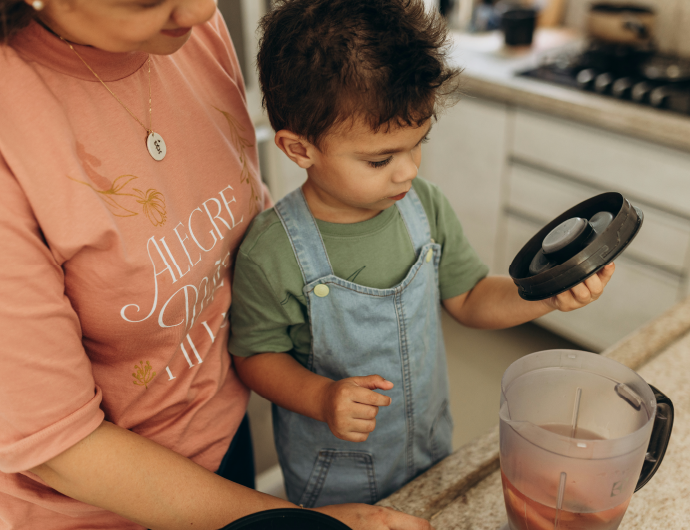
33. Buttoning and Zipping
Teach your child how to button a shirt or zip up a jacket. These everyday tasks help develop finger strength and coordination, laying the foundation for more complex activities like dressing themselves independently.
34. Scooping and Pouring
Give your child scoops, spoons, or small containers and encourage them to scoop and pour materials such as rice, sand, or water. This activity develops the pincer grasp and enhances control over their movements, mimicking tasks they will need to perform in daily life.
35. Watering Plants with a Small Watering Can
Encourage your child to water plants using a small watering can. This task strengthens their hands and fingers, enhances hand-eye coordination, and teaches responsibility and care for living things.
36. Baking and Decorating Cookies
Involve your child in baking and decorating cookies, allowing them to stir ingredients and apply decorations. This activity improves fine motor skills while introducing concepts of measurement, following directions, and creativity.
How Little Skool House Fosters Fine Motor Skills Development
At Little Skool House, we understand the importance of cultivating fine motor skills in young learners. Through our carefully designed preschool curriculum, we incorporate activities that promote these essential skills, alongside nurturing creativity, problem-solving, and social growth.
Our teachers create engaging and age-appropriate opportunities for children to explore and develop their physical abilities, ensuring that each child is equipped for their academic journey ahead.
By combining expert guidance with a fun, hands-on approach, Little Skool House provides a well-rounded environment where children can build confidence, independence, and a lifelong love of learning.



